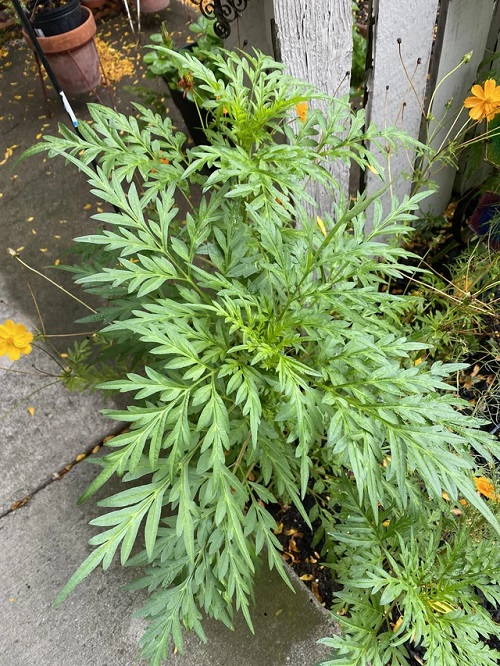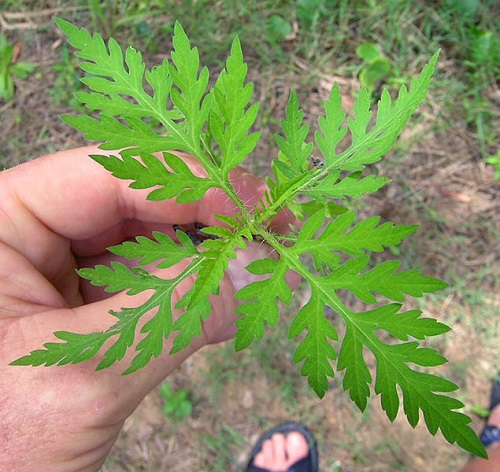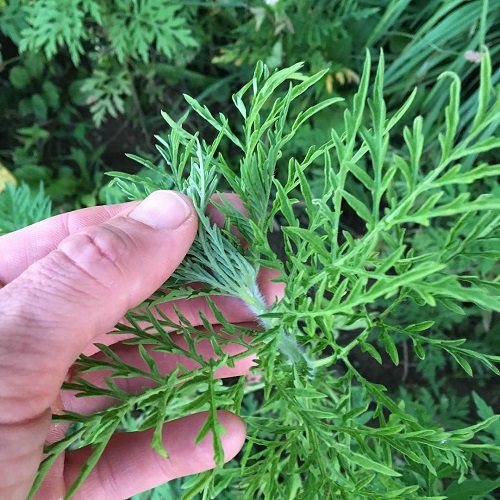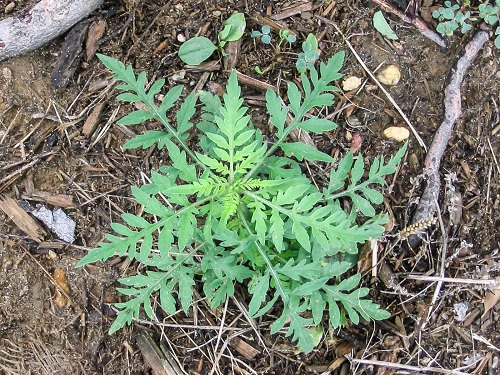If you’re looking for a plant with medicinal uses, then you can consider growing Ambrosia artemisiifolia. Here are all the details!

Ambrosia artemisiifolia, or ragweed, is a plant species notorious for causing allergies. Despite this, the plant has been researched for its potential as a source of biofuels and natural chemicals, and it has a variety of traditional medicinal uses. If you are interested in growing the plant, it is important to follow proper guidelines.
Read about Ficus Umbellata Care here
Ambrosia Artemisiifolia Plant Information
Ambrosia artemisiifolia belongs to the family Asteraceae. It is native to North America, but it has also been introduced to other parts of the world, including Europe and Asia.
Ambrosia artemisiifolia is an annual plant that grows up to 1.5 meters tall. The stems are erect, green, and hairy, while the leaves are alternate, pinnately divided, and have serrated edges.
The plant’s flowers are small and inconspicuous, and they are grouped into spikes that emerge from the upper leaf axils. The plant produces a large amount of pollen that is wind-dispersed, making it a major allergen for people with seasonal allergies. Despite this, Ambrosia artemisiifolia has a variety of uses in traditional medicine and agriculture.
USDA Zones: 4-9
Take a look at Sapphire Tower Plant Information here
Ambrosia Artemisiifolia Plant Uses

1. Traditional Uses of Ambrosia Artemisiifolia
Ambrosia artemisiifolia has been used for various medicinal purposes by Native American tribes. The plant’s leaves and roots were used to treat a number of ailments, such as fever, dysentery, respiratory issues, and skin disorders. The plant is also popular as a diuretic and relieves menstrual cramps.
In traditional Chinese medicine, Ambrosia artemisiifolia is popular to treat liver disorders, such as hepatitis and jaundice. The plant also treats diarrhea, hemorrhoids, and skin conditions.
Here are the Best Medicinal Plants with Their Benefits
2. Modern Uses of Ambrosia Artemisiifolia
In modern times, Ambrosia artemisiifolia is popular for its potential medicinal properties. The plant contains several compounds that have anti-inflammatory, anti-tumor, and anti-cancer properties.
It is also popular in agriculture as a source of biofuels. The plant has a high oil content, which serves as a biofuel. It also has the potential to be a natural insecticide source. T
Furthermore, the seeds of Ambrosia artemisiifolia are a food source for some Native American tribes. The locals also roast the seeds to make a beverage similar to coffee.
Check out Which Plants Like and Do Not Like Coffee Grounds here
Ambrosia Artemisiifolia Plant Growing Information
Ragweed, also popular as Ambrosia artemisiifolia, is a noxious weed that can make people and animals allergic. So, it is best not to grow this plant at home.
1. Climate and Soil
It is a warm-season plant that prefers full sun and well-draining soil. It can grow in a range of soil types, but it prefers soils that are rich in organic matter.
The ideal temperature for germination is between 15-32°C, and the plant can grow in temperatures up to 40°C.
Learn some Great Tips to Rejuvenate Your Old Soil here
2. Watering and Fertilization
It does not require much water or fertilization. The plant can tolerate drought and low-nutrient soils.
Learn the tips and tricks of how to water your plants when you are away here
3. Pests and Diseases
It may attract certain insects, such as aphids, which can be controlled using natural insecticides or by spraying with a mixture of water and soap.
Here are Types of Common Pests in Your Garden & How to Get Rid of Them
4. Harvesting
If you are growing it for research purposes, you may want to harvest the plant when it reaches maturity. You can collect its seeds for research.
If you are growing the plant for biofuels, harvest the plant before it flowers, as the pollen can cause allergies.
Ambrosia Artemisiifolia Plant Growing Safety Measures

Ambrosia artemisiifolia is a potent allergen and can cause severe allergic reactions in some people. Avoid contact with the plant and seek medical attention if an allergic reaction occurs.
If you are growing the plant, it is important to take precautions to prevent its spread. The seeds of the plant are easily spread by the wind or by animals, so it is imperative to prevent the plant from going to seed.
Additionally, if you are growing the plant for research purposes, it is important to follow safety guidelines and dispose of the plant properly.
Follow these Expert Tricks to Germinate Seeds Faster here
Conclusion
You can grow it under specific circumstances, but refrain from doing so. If you want to grow the plant, it is important to follow proper guidelines to prevent the spread for the safety of yourself and others.




Thank you for good information